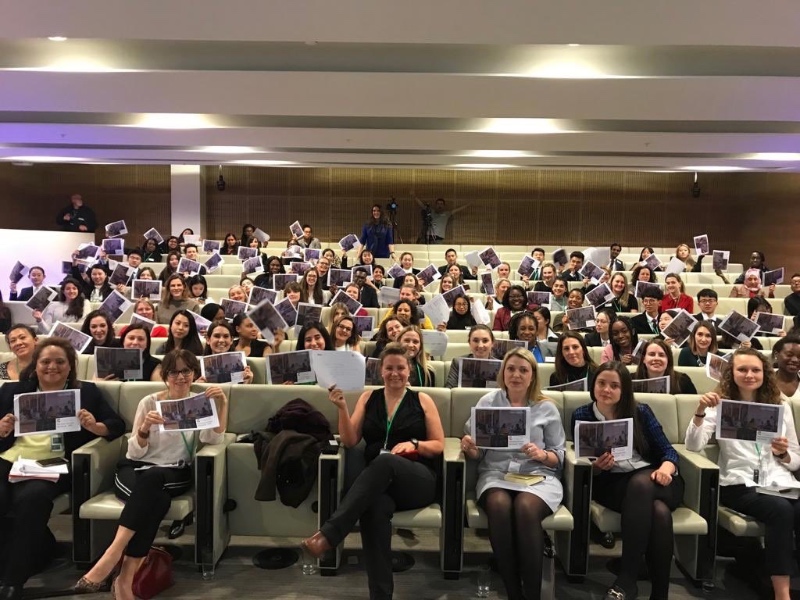
By Amy Rice, Senior Director, Corporate Communications, Workhuman
Working women, and in particular mothers, have been especially affected by the COVID-19 pandemic, tending to bear the brunt of increased childcare responsibilities caused by multiple lockdowns.
By May 2020, the Institute for Fiscal Studies found that mothers who were in paid work before the first lockdown were 47 per cent more likely than fathers to have permanently lost their job or quit since then. And the Fawcett Society found that 35 per cent of working mothers have lost work or hours due to a lack of childcare support during the pandemic.
Though many statistics on the topic date back to 2020, when COVID-19 was at its peak in the UK, the effects have proven to be long-lasting. PWC reported this year that the impact of the pandemic has significantly slowed progress to economic gender parity in OECD countries. In light of these facts, alongside the growing threats of the ‘Great Resignation’ and talent crisis in the UK, there is no better time for organisations to start recognising the value of hiring existing and expectant mothers and making it a priority.
Improve recruitment and retention with inclusive practices
This is where companies like Workhuman are leading the way. Workhuman has brought at least seven pregnant applicants on board since 2019. I myself was hired by the company when I was just about to give birth – at eight months pregnant – and have since strived to pay it forward by making sure not to overlook qualified expectant applicants. I recently hired a senior manager who started working in her ninth month of pregnancy. Sadly, she told me that her stage of pregnancy had cost her opportunities elsewhere. While it is important to help out working mothers given the disproportionately negative impact they have faced from the pandemic, this is not the only reason organisations should get on board.
In fact, making a conscious effort to hire more mums and mums-to-be is simply a smart move that will benefit organisations themselves. Hiring working mothers makes teams more diverse, thereby widening perspectives that in turn drive innovation. It also promotes a more flexible workplace culture, which will positively impact all employees and encourage them to stay with their current organisation. As Workhuman’s recent research found, one of the number one reasons UK workers are looking to move jobs is due to a desire for greater workplace flexibility. The research, based on a survey of 3,500 full-time employees in the UK, the US, Canada and Ireland, also found that working parents are the greatest flight risks, so this is certainly a group employers cannot afford to ignore if they wish to improve employee retention.
Long-term benefits to your organisation
Steve Pemberton, CHRO at Workhuman, has his own thoughts on why organisations should diversify their recruitment process in this way: “Firstly, employers want to fully utilise the talent pool, and expectant and existing mothers are part of that talent pool. Secondly, with the Great Resignation now upon us, many employers are struggling to find or replace top contributors to their workforces. If, as employers, we’re qualifying candidates by any labels, we’re at incredible fault for not making full use of the talent pool.”
The pandemic has led many workers to re-evaluate their priorities, and if employers want to retain their top talent, it’s vital for companies to have deeper discussions with their employees and demonstrate their understanding of the pressures facing their workers. Parenting is just one of the many pressures to have been exacerbated by the pandemic, and employers have a responsibility to ensure both existing employees and potential candidates are comfortable to have open and honest discussions about anything, including pregnancy and parenting, without it posing a risk to their current or potential job.
What’s more, opening the discussion and encouraging employees to celebrate their life events – such as having a baby or a child’s graduation – with their peers opens channels for authentic communication across their organisation. This in turn creates a stronger company culture, built on mutual trust and authentic connection – thereby further ensuring that employees are happy where they work.
Much has been said about the Great Resignation facing businesses today, but if employers make it a priority not to overlook talented individuals based on outmoded assumptions, they need not fear the looming talent crisis as a result.
 About the author
About the author
Amy Rice is a seasoned communications professional, with over 15 years’ experience in public relations and integrated communications. With a deep background working with technology companies across all public and private sectors, Amy’s areas of expertise include content creation, media strategy, crisis communications and corporate programmes. In her current position, Amy is responsible for making Workhuman a household name through communication tactics that break through the noise and share the importance of leading with humanity in the workplace.
During her career, Amy has held positions in-house and at PR agencies, bringing a wealth of knowledge regarding both sides of the house to her clients. Current client campaigns include labour market comms and brand awareness for talent acquisition goals and driving sales through storytelling around motorsport partnerships. Past clients include HUBweek, Smith Micro Software, Day Software, Jabra and Manhattan Associates.



























